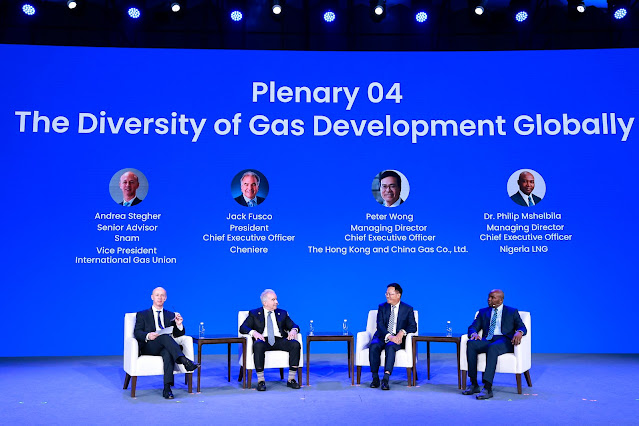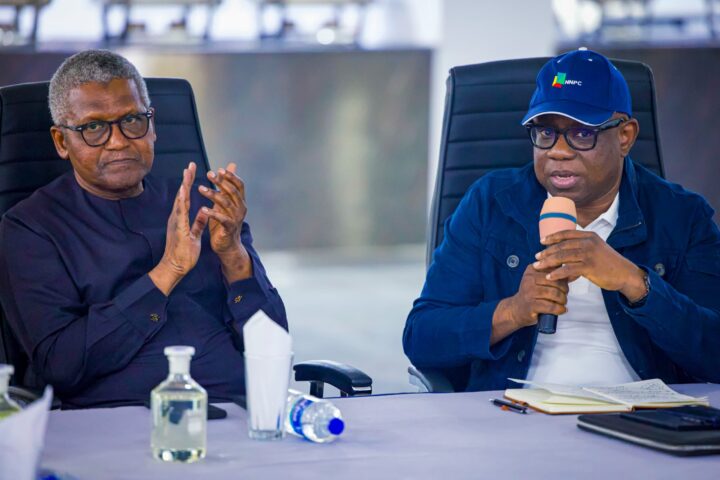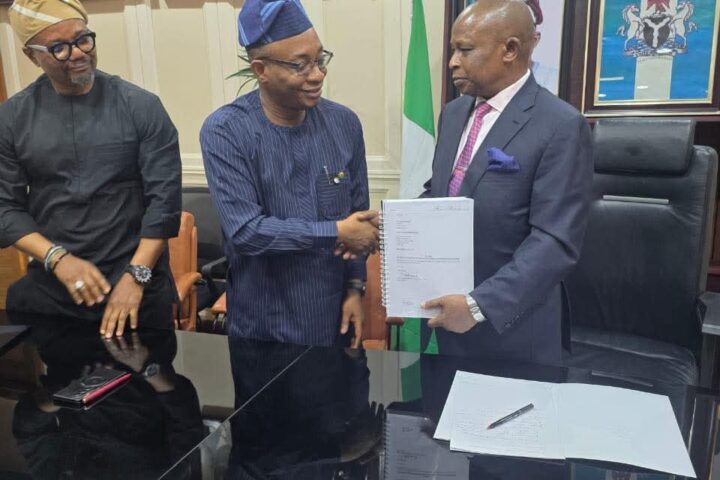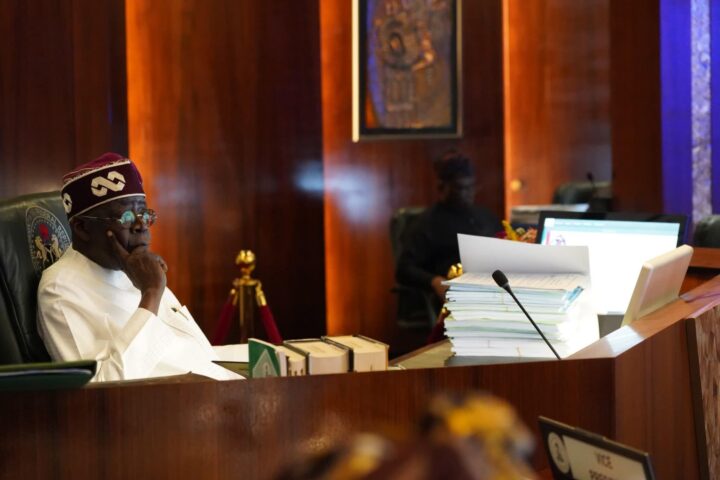Africa must prioritize natural gas as a cleaner alternative to traditional fuels like biomass in its energy transition journey, the Managing Director and CEO of Nigeria LNG Limited, NLNG, Philia Mshelbila, has said.
Mshelbila ,who spoke in a panel discussion titled :“Diversity of Gas Development Globally” at the 29th World Gas Conference in Beijing, China, emphasized that the keys to successful energy transition, particularly for natural gas, are reliable availability and affordability.
“Today, Africa’s population is about 1.4 billion, and most people still use biomass for cooking and liquid fuels for transportation. Power generation comes from a mix of hydro, natural gas, and, in many cases, diesel. This is where natural gas has a major opportunity, to displace dirtier fuels,” he said
He emphasised the significance of Nigeria’s Decade of Gas initiative as a strategic pathway for replacing high-emission fuels with cleaner low carbon fuels.
The Decade of Gas,he explains, is Nigeria’s strategic roadmap to replace high-emission fuels with cleaner, more affordable gas solutions.
He said gas is not just a bridge; it is a foundation for achieving energy access, industrialisation, and environmental sustainability.
According to him, for the past 25 years, there’s been significant focus on exports because the country needed the revenue, which is critical for development, adding that,however, domestic utilisation has lagged.
He added:”The Decade of Gas looks at supply, demand, infrastructure, and commercial frameworks to unlock gas utilisation. Considerable work has gone into removing bottlenecks and challenges that have hampered gas utilisation, both for domestic use and export.
“One example is the push for Compressed Natural Gas (CNG) in transportation, which is now gaining momentum. Another focus area is LPG, which NLNG has spearheaded. We have decided that our production of over 500,000 tonnes per annum will be entirely deployed for domestic use,” he said.
He added: “The goal is to displace biomass and kerosene used for cooking. This isn’t just about the cleanliness of natural gas, it’s also about addressing health issues related to indoor air pollution, which causes over 100,000 deaths annually among women and children.
“All these aspects are part of the Decade of Gas initiative. Our aim is that by 2030, we will have significantly increased natural gas utilisation to displace dirtier fuels and create a new foundation for future growth,” he added.
He spoke on the continent’s diverse energy landscape,and underscored the need for localised solutions.
He advocated the need for deliberate policies to foster infrastructure expansion, local content development, and innovation.
He said:“From a developing world perspective, I believe it starts with creating the right investment environment. We speak from real experience here. Although we have had natural gas for decades, it was only last year, as part of the Decade of Gas initiative, that we established clear fiscal terms for deepwater gas. Before that, investors took on significant risks because the fiscal terms weren’t defined. This is a clear example of government providing necessary clarity, so investors know exactly what they’re committing to.”
Mshelbila stated that infrastructure development could be driven by policy and emphasised that the right investments could promote gas infrastructure expansion. On pricing, he expressed complete opposition to government price regulation. However, he acknowledged that significant vulnerable populations in the developing world needed protection.
He stressed the import of ensuring affordability and access to natural gas for these groups.




















